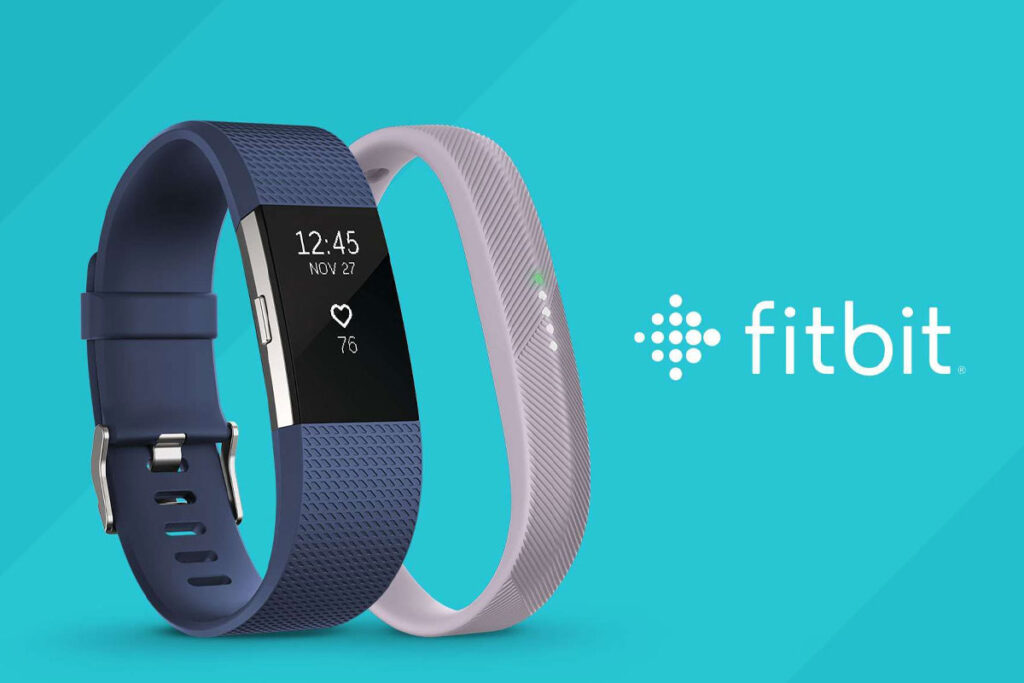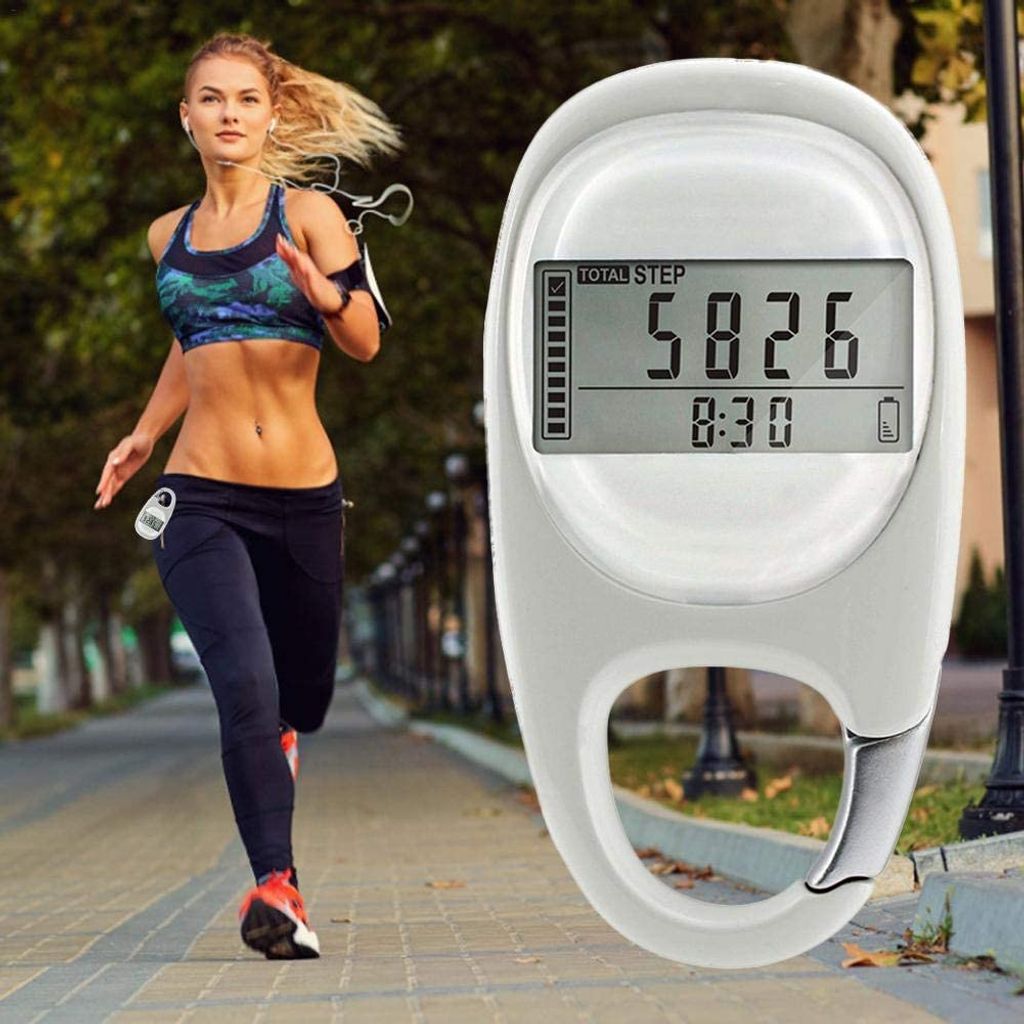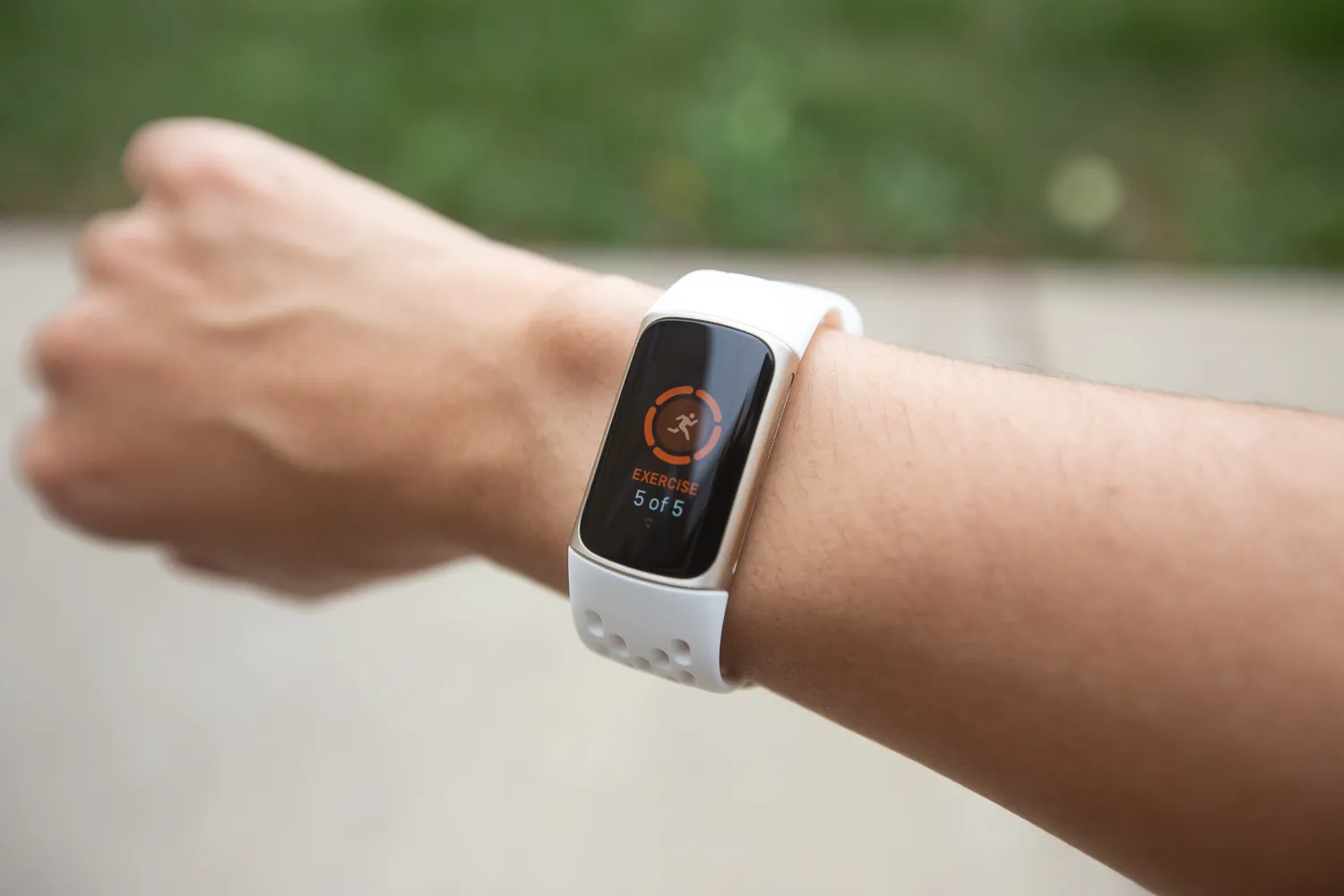Introduction
The world of fitness and wellness tracking has come a long way in recent years, and one brand that has consistently stood out in this space is Fitbit. Since its inception, Fitbit has revolutionized the way we approach fitness, offering comprehensive tools to monitor our activity, sleep, heart health, and overall wellness. As we step into 2025, Fitbit continues to lead the charge in wearable health technology. This article will explore how Fitbit remains the top health tracker for fitness and wellness, its features, the benefits it provides, and how it has evolved over time to stay at the forefront of the wearable tech industry.
1. The Evolution of Fitbit: From Step Counter to Wellness Powerhouse
Early Beginnings
Fitbit was founded in 2007 by James Park and Eric Friedman with the mission to help people live healthier lives through innovative wearable technology. Initially, Fitbit’s products were simple pedometers that counted steps, encouraging users to move more. However, the company’s vision quickly expanded as the demand for more comprehensive fitness and health tracking grew.
Breaking New Ground
By introducing features like heart rate monitoring, sleep tracking, and mobile connectivity, Fitbit became a game-changer in the fitness tech industry. Over time, the company expanded its product offerings to include more advanced smartwatches, including the Fitbit Charge and the Fitbit Versa. These devices not only track physical activity but also offer GPS functionality, guided workouts, stress management tools, and personalized health insights.
2. Fitbit’s Key Features for 2025
Comprehensive Activity Tracking
In 2025, Fitbit continues to excel in providing robust activity tracking. The company’s devices track a wide range of physical activities, including walking, running, cycling, swimming, and even specialized workouts like yoga and pilates. With automatic activity recognition and detailed performance stats, Fitbit makes it easier than ever to monitor progress toward fitness goals.
Advanced Sleep Monitoring
Sleep is one of the most critical aspects of health, and Fitbit’s sleep tracking feature has always been one of its standout functionalities. By analyzing users’ sleep stages (light, deep, and REM), Fitbit helps individuals understand the quality of their rest. Sleep Score, a feature that provides an overall assessment of sleep quality, is even more accurate in 2025, thanks to new algorithms that factor in environmental data like room temperature and noise levels.
Heart Rate and Stress Management
Fitbit’s continuous heart rate monitoring is integral to understanding cardiovascular health. In 2025, Fitbit has taken this a step further by introducing more advanced stress management features. The company’s devices now offer real-time stress level monitoring through heart rate variability (HRV) tracking and guided breathing exercises to help users manage stress throughout the day.
Personalized Health Insights
Fitbit has invested in AI-powered algorithms that analyze data from your activity, sleep, and heart rate to provide personalized health insights. These insights offer actionable tips on improving sleep, optimizing workouts, managing stress, and maintaining overall wellness. This level of personalization is what sets Fitbit apart in the wearable tech space.
3. Fitbit’s Role in the Fitness & Wellness Ecosystem in 2025

Integration with Other Health Apps
In 2025, Fitbit’s devices seamlessly integrate with popular fitness apps like Strava, MyFitnessPal, and Google Fit. This allows users to consolidate all their fitness data in one place, giving them a comprehensive overview of their health and wellness journey. Fitbit also continues to integrate with smart home devices, allowing users to track their wellness data alongside their daily routines.
Focus on Holistic Wellness
Fitbit has moved beyond just fitness tracking to become a holistic wellness platform. In addition to physical activity and sleep tracking, Fitbit devices now feature mindfulness exercises, guided meditation, and nutrition tracking to help users improve their mental, emotional, and physical well-being. Fitbit’s Health Coaching feature, launched in 2025, provides personalized recommendations based on users’ data and goals.
Community and Social Features
One of the most motivating aspects of Fitbit is its vibrant community. Fitbit users can connect with friends, join challenges, and share progress through the app. The Fitbit Community has grown significantly, with users encouraging each other to meet fitness goals and push their limits. The social integration in 2025 is stronger than ever, allowing users to participate in global challenges and track their achievements on a leaderboard.
4. Fitbit’s Impact on Weight Management and Fitness Goals
Weight Loss and Fitness Tracking
Fitbit’s ability to track calories burned, steps taken, and heart rate zones has made it an invaluable tool for those seeking to lose weight or reach specific fitness milestones. In 2025, Fitbit’s advanced Calorie Burn Estimation and Food Logging features provide more accurate insights into how food intake impacts overall fitness goals.
Customizable Fitness Plans
In 2025, Fitbit’s platform allows users to create customized fitness plans tailored to their individual fitness levels, goals, and preferences. Whether you’re looking to train for a marathon, lose weight, or build strength, Fitbit provides structured workouts and detailed feedback on your performance. These plans adjust dynamically based on your progress, ensuring you stay on track toward your goals.
5. Fitbit Devices in 2025: Which One is Right for You?
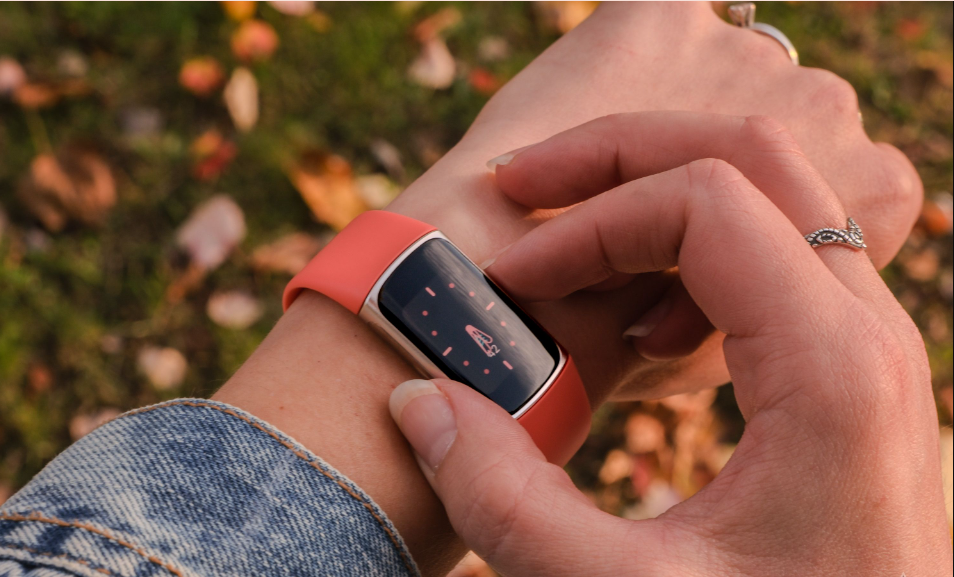
Fitbit offers a range of products, each tailored to different needs and preferences. Whether you’re a fitness enthusiast or someone just starting on your wellness journey, Fitbit has a device for you.
Fitbit Charge Series
The Fitbit Charge 6 is the latest addition to the Charge series, offering advanced health features like blood oxygen saturation (SpO2) tracking, advanced heart rate monitoring, and built-in GPS for more accurate outdoor activity tracking. It’s the perfect choice for those looking for a high-performance fitness tracker with a slim, comfortable design.
Fitbit Versa Series
The Fitbit Versa 4 is a smartwatch that offers all the fitness tracking features of the Charge series but with the added benefit of smartwatch functionalities. It has a larger screen, supports third-party apps, and offers smart notifications for calls, messages, and app alerts. It’s ideal for those who want a more all-encompassing device that combines fitness and lifestyle tracking.
Fitbit Sense Series
For those seeking a comprehensive health and wellness tracker, the Fitbit Sense 3 is Fitbit’s flagship model. It offers advanced health monitoring features like ECG (electrocardiogram) readings, skin temperature monitoring, and stress management tools. The Sense series is the most advanced choice for users looking to track every aspect of their physical and mental health.
6. The Future of Fitbit: What’s Next in 2025 and Beyond?
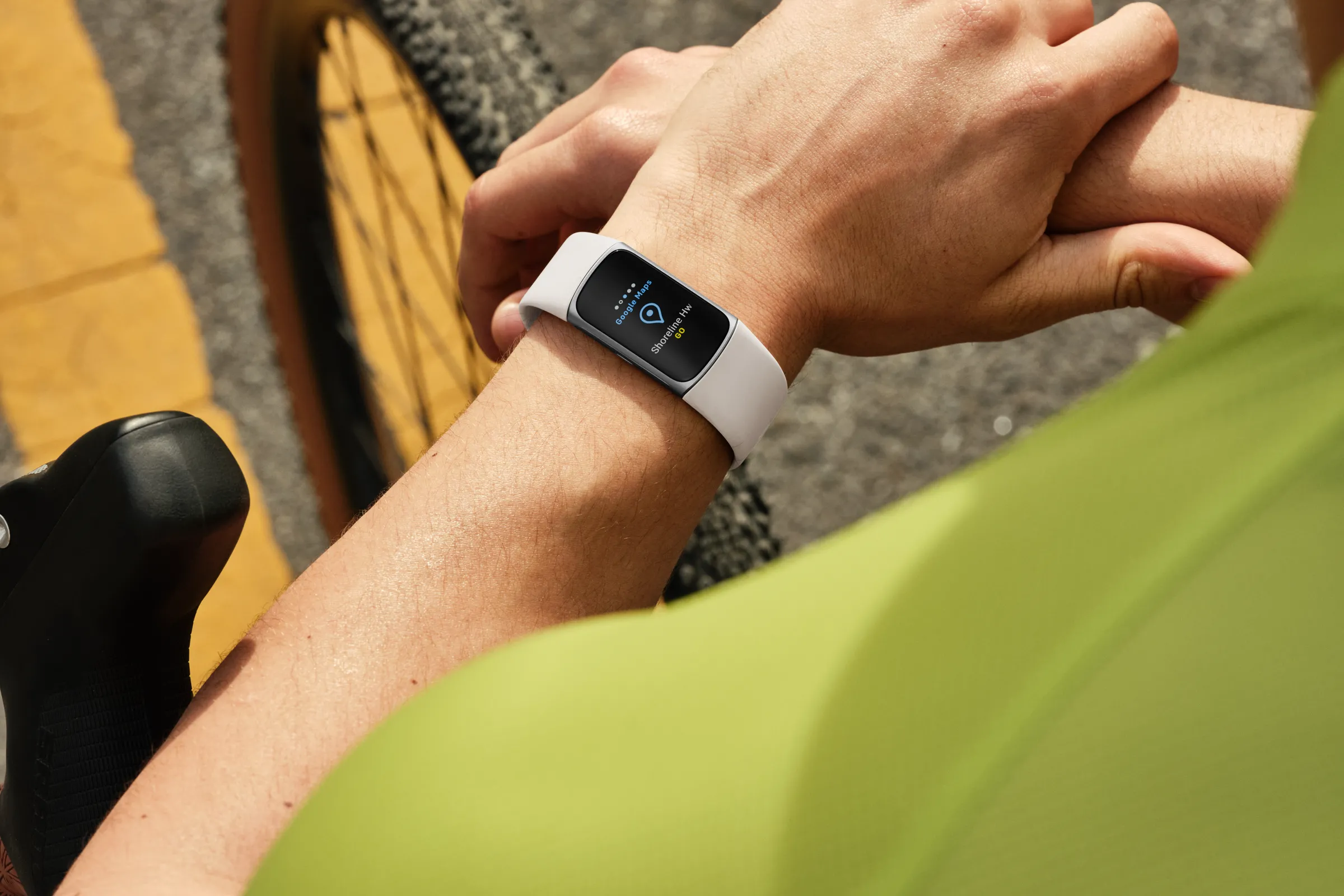
As Fitbit continues to innovate, we can expect even more groundbreaking features in the coming years. Some of the anticipated innovations include:
More advanced health metrics: Expect enhanced sensors and algorithms to track additional health metrics like blood pressure, glucose levels, and hydration.
Deeper integration with AI: Fitbit will likely incorporate more artificial intelligence to deliver even more personalized health recommendations.
Sustainability and Eco-Friendly Products: With a growing focus on sustainability, Fitbit may introduce eco-friendly devices made from recycled materials.
Conclusion
Fitbit’s commitment to innovation, personalized health insights, and integration with the latest technologies ensures that it will remain a leader in the wearable health tech space in 2025. Whether you’re a seasoned athlete, a fitness enthusiast, or someone just beginning their wellness journey, Fitbit offers the tools and insights needed to help you live a healthier, more active life. As we move into the future, Fitbit will continue to be a trusted companion in the pursuit of better health and wellness.
Call to Action:
Looking for a reliable and comprehensive health tracker? Check out Fitbit’s latest models and take the first step toward improving your fitness and overall well-being. Whether you’re looking for advanced tracking features, personalized insights, or simply a device that keeps you motivated, Fitbit has something for everyone.
This article provides a comprehensive overview of Fitbit’s features and its role in fitness and wellness tracking, highlighting its evolution and forward-looking trends. Let me know if you’d like me to develop any specific sections further!
FAQs
What is Fitbit and how does it work?
Fitbit is a wearable device that tracks your physical activity, sleep, heart rate, and overall wellness. It connects to the Fitbit app, where you can view detailed insights and personalized recommendations. The device uses sensors to monitor your steps, calories burned, heart rate, sleep stages, and more.
What are the benefits of using a Fitbit in 2025?
Using a Fitbit in 2025 offers numerous benefits, including accurate tracking of fitness activities, better sleep management, heart health monitoring, and stress reduction tools. It provides personalized insights, helping you set and achieve your health and fitness goals, while integrating with other apps for a holistic wellness experience.
How accurate is Fitbit’s heart rate monitoring?
Fitbit’s heart rate monitoring has improved over time and is highly accurate for most users. The device uses PurePulse™ technology, which provides continuous heart rate tracking. In 2025, the accuracy has been enhanced with advanced algorithms, offering more precise data, especially during workouts.
Can Fitbit track my sleep quality?
Yes! Fitbit devices offer advanced sleep tracking that measures light, deep, and REM sleep stages. The Sleep Score feature provides an overall assessment of your sleep quality, and in 2025, Fitbit’s algorithms offer even more detailed insights into your sleep patterns.
Is Fitbit waterproof?
Most Fitbit devices are water-resistant, but some models are waterproof and can be used while swimming. Devices like the Fitbit Charge and Fitbit Sense can track swimming activities, making them perfect for fitness enthusiasts who want to monitor all aspects of their workouts.
What’s the difference between Fitbit Charge, Versa, and Sense?
The Fitbit Charge series is a slim fitness tracker designed primarily for activity tracking. The Fitbit Versa series is a smartwatch that includes all fitness features plus smartwatch capabilities like app notifications and music control. The Fitbit Sense is the most advanced device, offering extensive health monitoring features such as ECG readings, skin temperature monitoring, and stress management tools.
Can Fitbit help with weight loss?
Yes! Fitbit can assist with weight loss by tracking calories burned, steps taken, and workouts. It also helps you set daily goals and offers personalized nutrition insights. The app allows you to log your food intake, giving you a better understanding of how your diet impacts your overall fitness goals.
What is the Fitbit app and how does it work?
The Fitbit app is a mobile app that syncs with your Fitbit device to provide detailed analysis of your activity, sleep, heart rate, and wellness metrics. The app offers insights, achievements, and challenges, and allows you to track your progress toward your fitness goals. It’s available on both iOS and Android devices.
Does Fitbit offer a community or social features?
Yes! Fitbit offers a vibrant community where users can connect with friends, join challenges, and share progress. Social features include global challenges, leaderboards, and the ability to cheer on friends as they work toward their goals.
Can Fitbit help reduce stress?
Yes! Fitbit devices have stress management tools, including guided breathing exercises and heart rate variability (HRV) monitoring. In 2025, Fitbit’s Stress Management Score gives users a real-time evaluation of their stress levels and offers tips to help manage them effectively.
How long does Fitbit’s battery last?
Battery life varies depending on the device and usage. Generally, Fitbit devices last between 5 to 7 days on a single charge. The Fitbit Sense and Fitbit Charge models have long-lasting batteries, while more feature-rich devices like the Fitbit Versa may require more frequent charging, especially when using features like GPS.
Is Fitbit suitable for beginners?
Yes! Fitbit is perfect for beginners, as it provides easy-to-follow activity tracking and health insights. Whether you are new to fitness or just want to track your daily steps, Fitbit’s simple interface and guided workout features can help you start on the path to a healthier lifestyle.
What’s new in Fitbit for 2025?
Fitbit has introduced more advanced features for 2025, including AI-powered personalized health insights, improved stress management tools, and enhanced sleep tracking. Additionally, new models like the Fitbit Charge 6 and Fitbit Sense 3 come with more comprehensive health metrics, such as blood oxygen saturation (SpO2) tracking and skin temperature monitoring.
How do I sync my Fitbit device with my phone?
To sync your Fitbit device with your phone, download the Fitbit app from the App Store or Google Play Store. After pairing your device with your phone through Bluetooth, the app will sync your data automatically. You can also sync manually through the app’s settings.
Can I use Fitbit without a smartphone?
While a smartphone enhances the experience and provides access to the Fitbit app, you can still use a Fitbit device without one. The device will track your activity, and when you sync it to your phone later, your data will be updated in the app.


